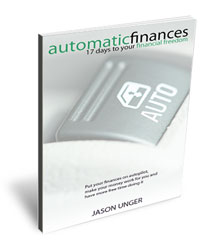
We bought our second house last year, selling our townhouse in the process. As much as I wanted to keep the townhouse and rent it out, we needed the money for the downpayment, and we weren’t likely to clear much profit even if we were able to rent it.
The new house has a whole story to it (which I’ll share another time), but it’s going to be a project for the next 30 years. It was a big move up; not only from a townhouse to a single-family home, but also from basically no property to just under an acre of land — not to mention the larger mortgage payment.
Part of me is uncomfortable having a large mortgage; it’s not that it’s unbearable to pay or we’re struggling to pay it, but I just want to get it paid as quickly as possible.
While some people would say it’s worth keeping the mortgage as long as possible — since it’s likely the cheapest debt you can have — I hate it. I hate looking at how much interest I’m paying to own the house. It’s my house. It’s not an investment.
I want to throw as much money as I can at the mortgage (within reason, and without depriving my family). So even though I’m all for big wins — throwing chunks of money at a debt — there’s a smarter, longer-term trick I’m using to pay the mortgage that will save me a lot of money in interest — and get the mortgage paid off quicker.
Pay One Additional Month Per Year with Biweekly Payments
Here’s how your mortgage payments usually work. Once a month, your checking account gets automatically debited to pay your mortgage. (You do have it automated, right?)
If you’re like many people, your job probably pays you once every two weeks — which means that you get paid 26 times per year. So while in most months you have two pay periods, every six months you’ll have an extra pay period — and that’s where you’re going to pay yourself first.
For those additional two weeks, make additional payments on your mortgage, and you’re going to save a ton of money. It’s called biweekly payments, and it’s going to save me almost $40,000 in interest and nearly 5 years on the life of my mortgage.
Since the additional payments are principal-only, you’re paying off the real amount you owe the bank — not the gravy interest on top. If your bank doesn’t allow you to make additional principal payments, refinance to one that does now.
How Much Can You Save?
It’s amazing to see how much money and time you can save by making biweekly payments. To see how much you’ll save, use Bankrate’s biweekly mortgage payments calculator.
And think about this: that’s only counting the automated additional payments. If you’re aggressive with your payments, and find additional money to throw at the mortgage, it’s just going to keep getting better.
If you end up getting very far ahead in your principal payments thanks to large lump sum payments, it may make sense to look into recasting. Recasting is essentially keeping the current length of your mortgage, but lowering the monthly payments to adjust to the new balance.
This is the Stuff That Gets Me Excited About Money
Knowing that I have a mortgage to pay for the next 30 years doesn’t keep me up at night, but I love paying it down and getting closer to not having it.
It’s the little things that can have a big effect — and automatically making biweekly payments can have a huge one.



